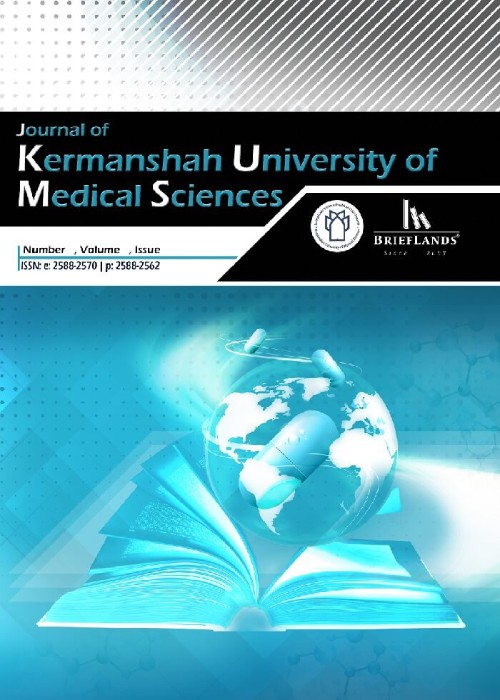Granzyme B Level in Acute Renal Transplant Rejection
Abstract:
Acute rejection of renal transplant is a serious and common systemic inflammatory disorder which leads to decreasing half-life of transplant organ. Current diagnoses method is an invasive biopsy procedure on allogtraft kidney. Therefore, applying a novel and noninvasive diagnostic method such as Granzym B level in acute renal transplantation could help patients and improves survival of transplanted tissue.
Materials And Methods
This study was an analytical descriptive one in which 32 patients, who underwent kidney transplantation from May to August 2003 in Uremia - Iran were studied. Five sequential blood samples from each patient between day 2 and day 20 after renal transplantation were obtained continuously. Serum levels of granzyme B were measured using immunoassay method. In addition, in case of uncertain acute rejection, needle biopsies of kidney were performed. Patients were followed up to 9 - 12 months to control function of transplanted tissue. Results
It was shown that 13 patients (40.5 %) with mean age of 33 years and 18 months duration of hemodialysis showed stable function of transplanted tissue. The mean serum levels of granzyme B in these patients were 148+ unit/ml. 19 patients (59.9 %), mean age of 43.74 years and mean hemodialysis duration 27 months, showed unstable function of transplanted tissue. 6 patients (19%) showed acute transplant rejection and 13 patients showed other etiological reaction. The mean serum levels of granzyme B in acute rejection in the first sample was 250.20 + 46.25 units/ml (day 2-5) in the second sample was 286.50+49.92 units/m (day 6-8), in the third sample was 275.60+68.40 units/ml (day 9-11) and in the forth sample was 253.17+86.14 units/ml (day 12-16). In relation to other two groups, the difference was statistically significant (p< 0.05). The mean serum levels of granzyme B in acute rejection group, in the fifth sample was 158.17+29 units/ml (day 17-20), and there was no statistical significant difference between two groups. Conclusion
The study confirmed that continuous measurement of granzyme B in whole blood by immunoassay methods within three weeks after renal transplantation could be a rapid and noninvasive diagnostic method for renal transplant rejection evaluation. Significant decrease of granzyme B at the end of third week after transplantation and after treatment with anti-acute rejection medicines could be helpful to evaluate response to anti-rejection treatment of transplantation. In conclusions, measurement granzyme B offers a noninvasive diagnosing acute rejection of renal allografts.Language:
Persian
Published:
Journal of Kermanshah University of Medical Sciences, Volume:11 Issue: 1, 2007
Page:
19
magiran.com/p489156
دانلود و مطالعه متن این مقاله با یکی از روشهای زیر امکان پذیر است:
اشتراک شخصی
با عضویت و پرداخت آنلاین حق اشتراک یکساله به مبلغ 1,390,000ريال میتوانید 70 عنوان مطلب دانلود کنید!
اشتراک سازمانی
به کتابخانه دانشگاه یا محل کار خود پیشنهاد کنید تا اشتراک سازمانی این پایگاه را برای دسترسی نامحدود همه کاربران به متن مطالب تهیه نمایند!
توجه!
- حق عضویت دریافتی صرف حمایت از نشریات عضو و نگهداری، تکمیل و توسعه مگیران میشود.
- پرداخت حق اشتراک و دانلود مقالات اجازه بازنشر آن در سایر رسانههای چاپی و دیجیتال را به کاربر نمیدهد.
In order to view content subscription is required
Personal subscription
Subscribe magiran.com for 70 € euros via PayPal and download 70 articles during a year.
Organization subscription
Please contact us to subscribe your university or library for unlimited access!


